Lord Dunsany Re-Read: A Dreamer’s Tales, Part 1
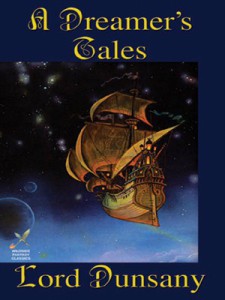 This week launches the first instcallment of our read through of a Lord Dunsany short story collection, A Dreamer’s Tales. My friends Bill Ward and C.S.E. Cooney have been kind enough to join me in posting their thoughts. You can join in too — this book’s stories not only are quite short, they’re freely available as a Kindle download or through Project Gutenberg. It won’t take very long to catch up if you haven’t read them yet, so you might want to do so before you read any further. We began with the first five of them.
This week launches the first instcallment of our read through of a Lord Dunsany short story collection, A Dreamer’s Tales. My friends Bill Ward and C.S.E. Cooney have been kind enough to join me in posting their thoughts. You can join in too — this book’s stories not only are quite short, they’re freely available as a Kindle download or through Project Gutenberg. It won’t take very long to catch up if you haven’t read them yet, so you might want to do so before you read any further. We began with the first five of them.
We could have started the re-read with any of Lord Dunsany’s eight short-story collections, but I thought the opening entries in A Dreamer’s Tales were quite strong and hopefully would convince newcomers to stick with him.
Here’s how I rate them. One star is a standout. Two stars means it’s among Lord Dunsany’s very best.
* “Poltarnees”
** “Blagdaross”
* “The Madness of Andelsprutz”
“Where the Tides Ebb and Flow”
“Bethmoora”
 Lord Dunsany can often be a little light on plot or even plotless, though he’s a master of breathtaking description and at peering into the hearts and the desires and fears of human beings. “Poltarnees,” though, does have a plot, and it reads like a wondrous, forgotten fable. Naturally it’s threaded through with the lyrical language for which Lord Dunsany is known. I happen to think that it kind of skewers some traditional fable tropes because it hardly provides the expected ending. But then many old fables with young people concern themselves with love and romance between humans and this one is about the power of longing.
Lord Dunsany can often be a little light on plot or even plotless, though he’s a master of breathtaking description and at peering into the hearts and the desires and fears of human beings. “Poltarnees,” though, does have a plot, and it reads like a wondrous, forgotten fable. Naturally it’s threaded through with the lyrical language for which Lord Dunsany is known. I happen to think that it kind of skewers some traditional fable tropes because it hardly provides the expected ending. But then many old fables with young people concern themselves with love and romance between humans and this one is about the power of longing.
“Blagdaross” is more like a collection of moments gathered as a camera pans over a group of storytellers — a very strange group indeed — but every one of their stories is fascinating. I first read this one more than fifteen years ago and I’ve never forgotten key moments of it. Blagdaross remains my favorite of the storytellers, but the cord was even more terrible than I remembered, and this time its tale stayed with me longer, like the lingering effects of a nightmare.
“The Madness of Andelsprutz” — what a beautiful little story that no one but Lord Dunsany might have conceived, where he breathes life into entire cities. Claire writes more eloquently about it below, and then Bill has some excellent observations about some of its aspects that I had taken for granted.
“Where the Tides Ebb and Flow” is a haunting read, but I don’t number it among Dunsany’s best.
“Bethmoora” is a variation on one of Dunsany’s themes — that of an astonishing city that is faded and lost, described with great beauty. But he does it better elsewhere.
Take it away, Claire!
TIGER OF THE GODS?!! I want that to be on my tombstone. If I have to give them stars, I suppose I’d rate them like this:
* “Poltarnees”
** “Blagdaross”
** “The Madness of Andelsprutz”
** “Where the Tides Ebb and Flow”
* “Bethmoora”
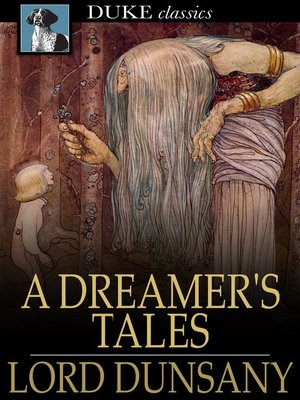 With Poltarnees I found myself constantly highlighting and copying the text in my Kindle, and then text messaging it to people, or posting it to Facebook, or Twitter. It kept snagging me. Snagging my attention, like sea breeze from a mountain. It made me want to leave my Inner Lands and go search for something far distant. But it dissatisfied me too, for the kind of reader I am. To be fair, that kind of dissatisfaction generally makes a nuisance of itself until I rectify it in my own writing. I keep seeing the Princess/Priestess setting off for the mountains, for the sea itself. Maybe as an old woman. Maybe her final journey. And maybe she meets an old fisherman on the docks, and recognizes him. And maybe she tells him, “You were wrong. Even at my most beautiful, I was never so beautiful as this.” And the moon looks down on her, and shines upon her brow, and hates her no more.
With Poltarnees I found myself constantly highlighting and copying the text in my Kindle, and then text messaging it to people, or posting it to Facebook, or Twitter. It kept snagging me. Snagging my attention, like sea breeze from a mountain. It made me want to leave my Inner Lands and go search for something far distant. But it dissatisfied me too, for the kind of reader I am. To be fair, that kind of dissatisfaction generally makes a nuisance of itself until I rectify it in my own writing. I keep seeing the Princess/Priestess setting off for the mountains, for the sea itself. Maybe as an old woman. Maybe her final journey. And maybe she meets an old fisherman on the docks, and recognizes him. And maybe she tells him, “You were wrong. Even at my most beautiful, I was never so beautiful as this.” And the moon looks down on her, and shines upon her brow, and hates her no more.
That’s basically my reaction. In a nutshell. But none of THAT was in the ACTUAL STORY. My final take? For a fable it made a good HORROR STORY! That last line? SHIVER ME TIMBERS! I still wish the princess got to effect her own escape. She’d’ve made a good PIRATE on that terrible, terrible sea.
“Blagdaross” was so CREEPY and adorable!!! It was like… The Velveteen Rabbit meets Toy Story 2 meets, I dunno, Don Quixote. I loved the cork especially, who stood sentinel for the leaping wine. And feared the cord, the grim cord and its purpose. And felt a great fellow feeling for the unstruck match.
But Blagdaross! So bitter and exultant! So sure of his place and the depth and breadth of his soul! So true to his name. Ah, man. Made me hate, for a second, to be a grown up.
“The Madness of Andelsprutz:” I love the idea of GHOST CITIES!!! This story was well-placed on the heels of “Blagdaross,” for they both concern the living souls of inanimate things. From discarded trash to dead cities is a mighty leap, made palatable by the logic of extrapolation. I loved the entire passage about “some cities are this, others are this,” but all having a certain “way about them.” And then, the horrible feeling of entering a city without any way about it at all. That stuck deep. I feared the story was going to be about a plague. But it wasn’t. Siege, though–and the ravages of war and waiting.
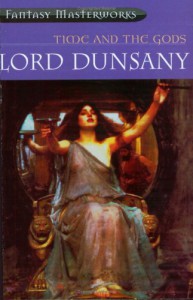 “Ebb and Flow” was another nightmarish story. With that peculiar thing Dunsany does where he gives souls to things generally considered lifeless. Those “mean houses” and a man’s poor bones. It broke my mind a little, the line about longing for a proper burial: “for the great caress of the warm Earth or the comfortable lap of the sea.”
“Ebb and Flow” was another nightmarish story. With that peculiar thing Dunsany does where he gives souls to things generally considered lifeless. Those “mean houses” and a man’s poor bones. It broke my mind a little, the line about longing for a proper burial: “for the great caress of the warm Earth or the comfortable lap of the sea.”
There’s a rocking and a lapping in the text itself. It’s delicious. It brings to my mouth the taste of mud and brine. Again, it’s a story almost wholly of atmosphere, of ritual, and not of plot at all. Hardly there is a character except the bones, the men who carry out the rite, the mean houses, and the tide itself. But one can dwell indeterminately in this place or leave it suddenly, but not quite forget it.
And in the end the whole thing turned exultant, like a dream that goes from dankness and despair and sour adrenalin to a burst of clarity just before waking. For that, and for the thing he did that made me think of burial in a way I’ve never thought of burial before… For those things, two stars. For the taste in my mouth.
I’m digging the placement of “Bethmoora” behind “Ebb and Flow.” Another first person, another setting in Benighted London. “Behold now night is dead,” he writes. But it isn’t, quite. Night breathes in his words. And then he leaps us into this fable of Bethmoora, through a pair of green copper gates, into a desert. He does that in the next breath. Nice segue, Dunsany. Dunsany, I SALUTE YOU!
Gosh, this dude’s got DREAD and LONGING down to a frikkin’ art form. Like he’s flinging his soul out from a well like a grappling hook, trying to catch hold of something that will save him. I should totally look him up on Wikipedia. His writing makes me wonder how he died.
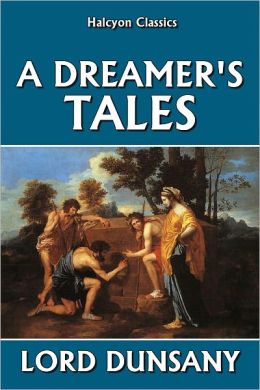
Howard, I agree completely with your star ratings.
“Poltarnees, Beholder of Ocean” is the sort of story I associate with Dunsany, and felt like familiar ground and it’s the one I have the most to say about. Dunsany really does evoke the feel of genuine myth, everything from names and structure, to the metaphorical logic that underpins the story. I love the digressions in this, scenes like the Kings comparing the Princess to natural phenomena to determine if she is truly beautiful enough to rival the sea, or the gariach hunter’s own story of his first hunt. They feel like the kinds of things that accumulate around real myths, the stuff that gets stuck in because a dozen generations have told and retold the story among themselves. The highly poetic language and the personification of natural features and phenomena all reinforce this.
The lesser version of this story would probably solely be about beauty –those who behold the sea never return because of some great aesthetic longing it provokes. But instead it seems to me it’s about experience, wisdom, and closely mirrors a religious awakening (the sea, after all, is the god of the landlocked kingdoms). People never turn away from the sea once they behold it not because it uplifts them, or because it is the “supreme beauty” that those who have never seen it imagine it to be, but because it shows them something undreamt of in their own experience, something both beautiful and terrible and much more besides. It changes the world by being in it. They can’t go back down the mountain in the same way one cannot regain innocence, or return to the outlook of an earlier age.
In the end, the abstraction of the sea is easily switched from god to devil for those who haven’t seen it and now wish to curse it, because they never
understood it for what it was in the first place; you either have experienced it, or you have not.
“Poltarnees” was my favorite of the five, but “Blagdaross” is the better story in my opinion, and one I immediately realized I’d read before, though
I couldn’t tell you where. Seems to me it’s about imagination, both the fertile imagination of the writer, and the redemptive quality (and “largeness of soul”) imagination has on poor forgotten Blagdaross himself. You’d have to have an imagination to glimpse the former lives of these discarded things, but only one of them can be reborn through that same medium, and can get back what was lost. A really fine, fascinating, uplifting tale, and a celebration of fantasy and innocence.
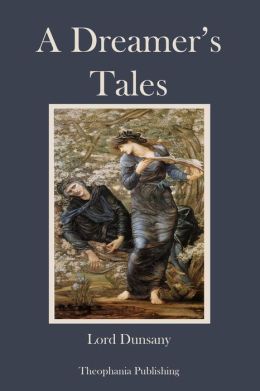
“Where the Tides Ebb and Flow” reminded me of Poe, and surprised me a bit; it’s not what I associate with Dunsany. The conceit of waking up from a dream is nowhere near as acceptable today as it must have been when it was written, and overall it just felt like a solid short from a guy that knows the form, and his audience, very well. The interesting ideas it raised felt negated by the ending.
“Bethmoora” is enjoyable, but didn’t really resonate beyond just Dunsany being Dunsany (not that that isn’t enough!)
Overall, glad to be reading Dunsany after a long hiatus, he really is something amazing.
There’s the take from the three of us, but I’m hoping you’ll join in the discussion. Claire and Bill and I will be wandering through the site every now and then to respond to your own observations (although I might be a day or two late this week).
Next week we’ll only read two stories — “Idle Days on the Yann” and “The Sword and the Idol,” and I hope you’ll read along. Yann is so dreamy and poetic that it really should be savored slowly, methinks. It’s also longer than standard for Lord Dunsany. You could overdose on his prose by reading too much too fast.
Here’s my final summation for the week:
Dunsany is great.
Blagdaross is best of all.
Can’t wait to read more.
21 Comments